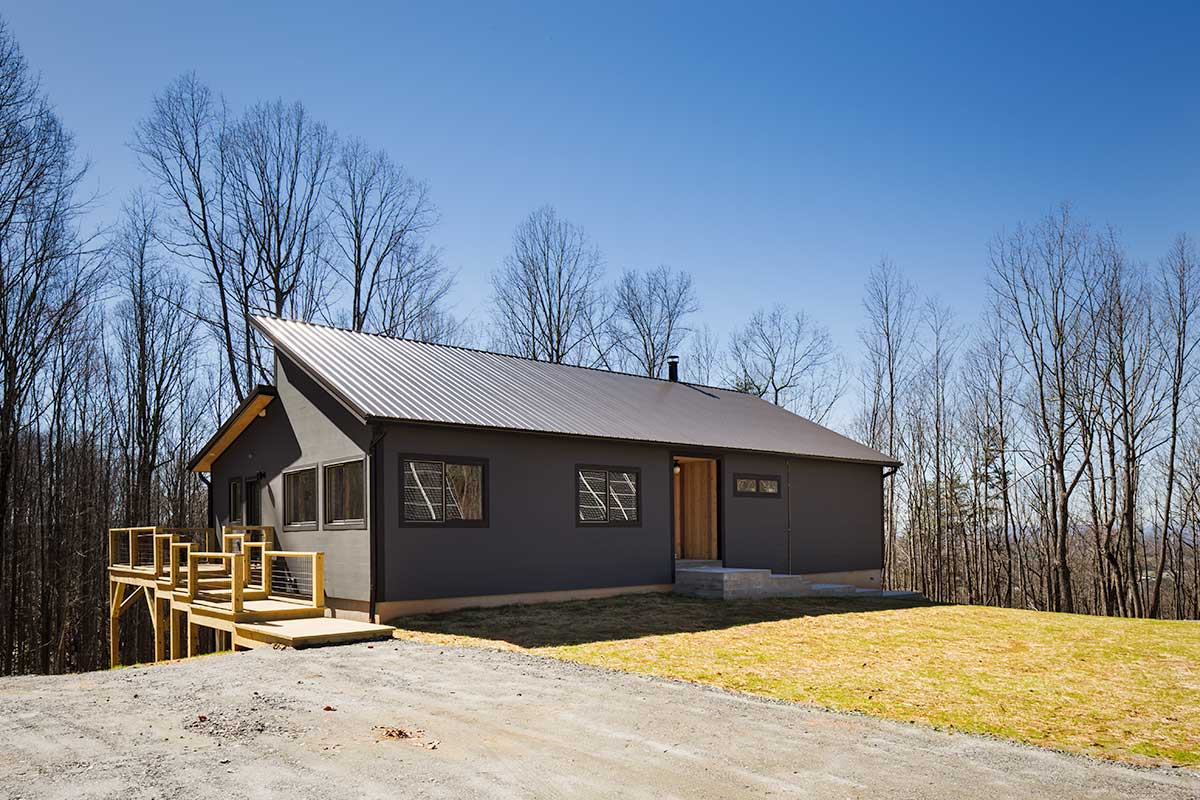Manufactured homes vs. modular homes – the main differences
In the matchup of manufactured homes vs. modular homes how do the two choices rate? Here’s the answer


If the competition is manufactured homes vs. modular homes, do you know which is better? There are important differences between the two types of home that it pays to be aware of.
While both manufactured and modular homes are types of prefabricated homes, the two are distinct choices that shouldn’t be confused, so we’re bringing you all that you need to know about the differences between the two. We’ve called on experts, to help distinguish the difference between manufactured and modular homes so that you can make an informed decision.
Manufactured homes vs. modular homes
Before weighing up the pros and cons between manufactured and modular homes, let’s define what we mean by both terms. As we mentioned, both manufactured homes and modular homes are types of prefabricated (prefab) homes. And what’s a prefab home? It’s one that’s manufactured in a factory. In other words, in advance away from the site where it is to be built.
Prefabricated homes fall into subtypes. What’s made in the factory can be modules for a modular home, sections for a manufactured home, or panels. These are shipped from the factory where they’re made to the site.
‘While modular homes and manufactured homes are constructed off-site, modular homes may be pieced together on site to form unique, eye-catching structures,’ explains Warren Byington of Backyard Brothers. ‘They’re held to the same building codes as traditional houses. Manufactured homes arrive on site complete.’
What is better, a modular or manufactured home?
The bottom line of the manufactured homes vs. modular homes contest is the question of which is better.
To answer this, the first thing you need to know is that the two are subject to different regimes. Dawn Pfaff, founder of MH Authority explains: ‘The difference between modular and manufactured homes is the standard they are held to: manufactured homes are built to HUD (the Department of Housing and Urban Development) code, while modular homes are built to state code, which is generally more strict.
Get small space home decor ideas, celeb inspiration, DIY tips and more, straight to your inbox!
As to the caliber of the two options, manufactured and modular, she adds: ‘Modular homes can be as high quality as site-built homes.’
Manufactured homes, however, are a different type of construction. ‘A manufactured home is more akin to a traditional mobile home,’ explains Deidre Woollard of Millionacres.
‘It is completely manufactured elsewhere and brought onto the site, sometimes as a complete unit, sometimes in multiple pieces. These can be placed on a traditional foundation or on an elevated platform and stairs, garages, and other features can be added on.’
As for how long it will take before you can move into your home? ‘Both can result in a home that's ready speedily, albeit manufactured homes are rather immediate,’ says Warren Byington.
Which is better for you will also depend on your budget. ‘Manufactured homes are often less expensive than traditional construction but they may not be allowed in all areas,’ says Woollard.
‘Modular homes are generally more expensive to construct than manufactured homes although they are cheaper than traditional construction,’ she says. ‘One estimate is that manufactured homes cost around $40 to $50 per square foot whereas modular homes can start around that level but be as high as $100 per square foot or more.’
You’ll also find a difference between the two types of home in terms of financing your purchase. Standard financing options are available for modular homes, but those for manufactured homes are more limited, and government-backed loans are the most common route.
How can I tell the difference between a modular home and a manufactured home?
It should be clear that a home is a manufactured one by looking. However, the task of discerning whether a home is a modular one is far more difficult.
‘A modular home is very similar to a traditionally constructed home,’ says Deidre Woollard. ‘Because of this it tends to be hard to spot. Manufactured homes are easier to spot because they generally have a fairly standard layout and configuration.’
However, manufactured homes can have their visual merits despite this. ‘While not about to grace a cover of an architectural magazine, manufactured homes’ appearances have come a long way over time with unique bells and whistles that mobile homes didn’t always offer,’ says Warren Byington. ‘From porches to awnings and bay windows, they can be visually appealing.’
Can a manufactured home become a modular home?
While they are both prefabricated homes, manufactured homes and modular homes are distinct from one another, and that isn’t something you can change.
‘Many modular homes in this era are modern and even sought-after for their unique style, customization, and potential to appreciate over time,’ says Warren Byington.
‘As a finished structure on a foundation that adheres to building codes, modular houses exist within the traditional housing market.
‘The factory-to-site speed of manufactured homes comes with a big benefit: they are often very affordable. They are not synonymous with the traditional housing market as modular homes are, and some areas even restrict manufactured homes, whether in an effort to employ the strictest building codes used on “normal” and modular homes and/or to preserve a certain visual aesthetic in a community.’
Do manufactured homes lose value?
Wondering whether if you resolve the question of manufactured homes vs modular homes by opting for the former it will lose its value.
‘Today’s manufactured home is of much higher quality than the manufactured homes/mobile homes of the past,’ says Deidre Woollard. ‘The Department of Housing and Urban Development estimates that manufactured homes can last from 30 to 55 years but many homes last longer than that.’
There is a caveat, however. ‘In general, manufactured homes are more likely to lose value over time although the increase in the quality of construction has made this less of a concern,’ she adds.
However, if circumstances permit, you may want to have more confidence, and because of the tendency of manufactured homes to lose value over time, Philip Ash, founder of Pro Paint Corner suggests: ‘If you’re thinking of your home as an investment, you might want to consider this fact when choosing between modular and manufactured homes.’

Sarah is a freelance journalist and editor writing for websites, national newspapers, and magazines. She’s spent most of her journalistic career specialising in homes – long enough to see fridges become smart, decorating fashions embrace both minimalism and maximalism, and interiors that blur the indoor/outdoor link become a must-have. She loves testing the latest home appliances, revealing the trends in furnishings and fittings for every room, and investigating the benefits, costs and practicalities of home improvement. It's no big surprise that she likes to put what she writes about into practice, and is a serial house revamper. For Realhomes.com, Sarah reviews coffee machines and vacuum cleaners, taking them through their paces at home to give us an honest, real life review and comparison of every model.